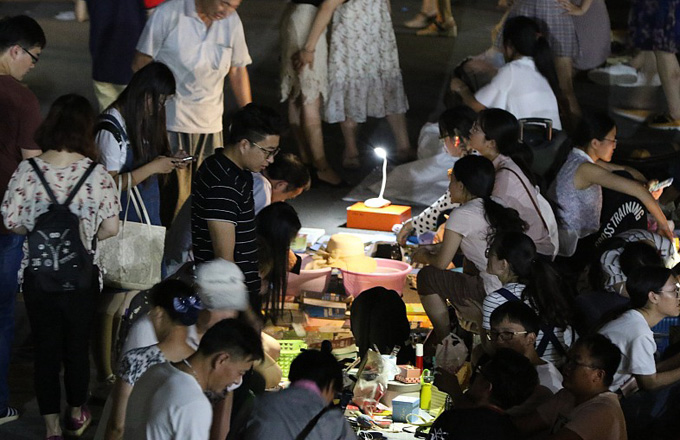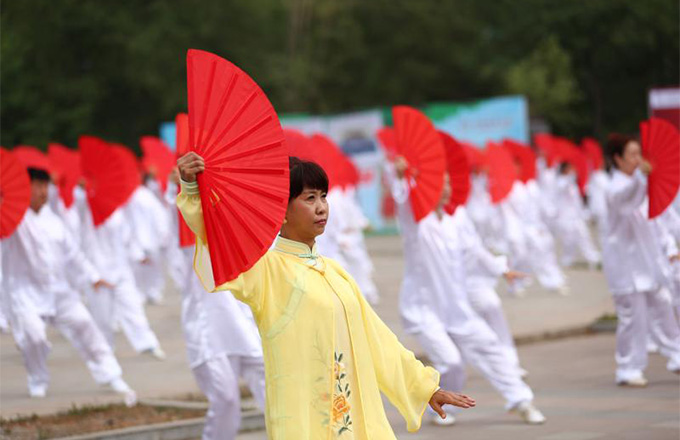Grassroots legislators bond with residents
Members of several grassroots people's congresses shared their success stories in setting up special offices to connect with residents during a conference in Beijing on Monday and Tuesday.
The seminar, organized by the Standing Committee of the National People's Congress, the country's top legislative body, was designed to identify best practices and promote relations nationwide between residents and local deputies to the legislature.
The nation's top legislator, Zhang Dejiang, chairman of the NPC Standing Committee, said at the seminar on Monday that people's congresses at all levels should narrow the gap between legislators and residents, as well as keep in touch with those who voted for them.
"People's interests can be upheld and maintained effectively if our congresses improve connections with them," he said.
A number of success stories emerged after a guideline was issued in June 2015 by the country's central leadership to improve the performance of people's congresses at the county and township levels. One of those was the establishment of offices, or stations, for grassroots deputies.
Top legislators applauded the moves and called for lower-level governments across the country to become more familiar with people's problems so that more effective solutions can be found.
Huang Youchang, president of the people's congress in Qingyun township, Jiangxi province, called the grassroots office there "a liaison station for deputies and residents", which acts as a sort of "home" for officials.
"The deputies have face-to-face talks with residents at the station, and they channel the people's difficulties to those who can provide solutions," he said.
For example, one deputy, who is also an entrepreneur in the township, repaired a bridge that residents had been complaining about, after some villagers submitted their request to the station.
"The repair finally solved the travel difficulties of 179 villagers who live near the bridge," Huang said. "In the past, it was hard to find deputies, but now residents can see them and speak to them easily."
Yang Xiaoyong, director of the standing committee of the Kongtong district people's congress in Pingliang, Gansu province, said such offices are also good places to train deputies.
So far, the district has built 69 such offices in communities. More than 90 percent of the deputies are educated or trained at the base, Yang said.
Yao Yinliang, deputy director of the Standing Committee of the Shaanxi Provincial People's Congress, said: "We've increased our efforts to regulate deputies' work by establishing regular systems in the stations."
He said that similar stations have been established in several cities in the province, including Xi'an, Baoji, Hanzhong and Xianyang.
"People's congresses at each level in Hanzhong have set up 478 deputy stations. About 21,000 deputies have participated in activities organized by the stations so far," he said.
Qin Nianhai, head of the people's congress in Yandao township, Sichuan province, likened the station to a base for deputies, and said it brings them a sense of belonging.





















